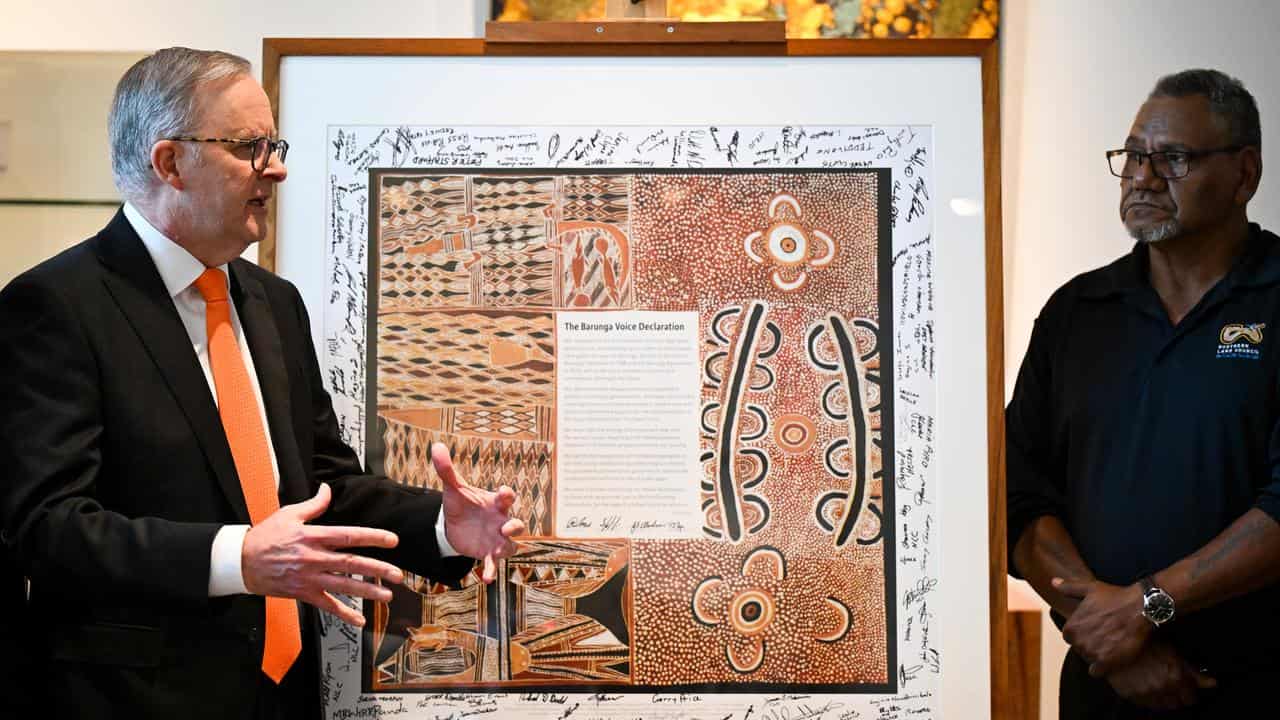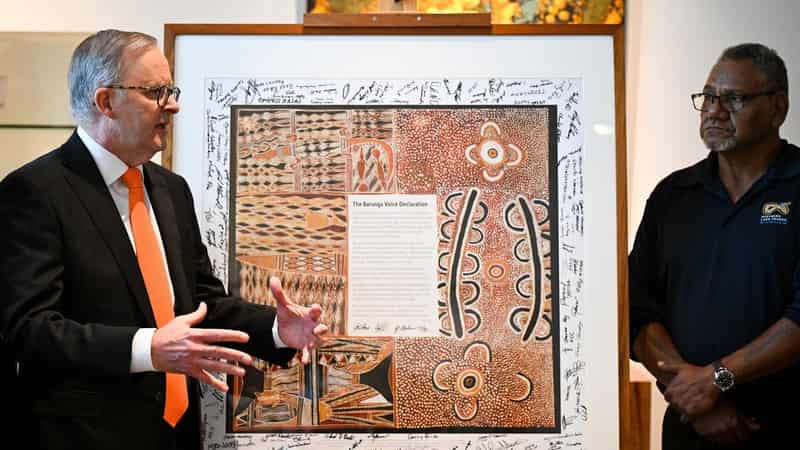
Representatives of the Northern Territory land councils have delivered the Barunga Declaration to Prime Minister Anthony Albanese and talked up their support for a First Nations voice.
The declaration calls “for the recognition of our peoples in our still young constitution by enshrining our voice to the parliament and executive government, never to be rendered silent with the stroke of a pen again”.
Members of the Northern, Central, Tiwi and Anindilyakwa land councils signed the declaration at the Barunga Festival in early June and presented it to Mr Albanese and Minister for Indigenous Australians Linda Burney in Canberra on Thursday.
The 2023 Barunga Declaration invites all Australians to “right the wrongs of the past and deal with the serious issues impacting First Nations peoples ... and unite our country” by supporting a 'yes' vote in the referendum later this year.
The land councils also met with the Parliamentary Friends of the Uluru Statement, including Liberal MP Bridget Archer.
"We are united with you in your determination to walk forward together towards this referendum for a successful outcome to change the lives of First Nations people in Australia and create a better future for our whole country," she said.
"I entirely agree with the sentiments of Minister Burney yesterday when she said 'I'm not interested in culture wars'.
"I'm not interested in the negativity.
"We should be ashamed of our history in this country and we have an opportunity to fix it, to walk forward and to change it and I'm going to do that in a positive way between now and the referendum vote and work towards a positive outcome."
Josie Douglas from the Central Land Council read out a statement from Labor Senator Patrick Dodson, who has been on a leave of absence from Parliament.
"For five decades now land councils have been making representations to governments on behalf of your constituents, protecting your land rights and calling out injustice," Ms Douglas said on Senator Dodson's behalf.
"Sometimes your advocacy has made a positive difference, other times governments, territory and Commonwealth, have not been moved.
"It will be just like that with the voice.
"The voice won't be able to impose its will on government or the parliament but it will be able to state a case loud and clear."
Northern Land Council chair Samuel Bush-Blanasi pointed out that since the 2007 Northern Territory Intervention, when John Howard sent the military into remote communities without warning residents, Aboriginal people understood how legislation could operate if it doesn't have Indigenous input.
"Our lives have been dictated by government," he said.
"Now it's time to get the message out to the people of Australia - having a voice will make our lives better.
"Seriously, the people of Australia should vote 'yes' so we can move forward together."
Ms Douglas said Aboriginal Territorians were in favour of voice.
"Because if you ask people what they want in their communities, do they want better education, do they want better health services, do they want health services, housing, drinking water, the answer to all these questions is a resounding yes," she said.
"So that is a yes for the voice, so that the voices of remote Aboriginal territories can be heard and listened to."









